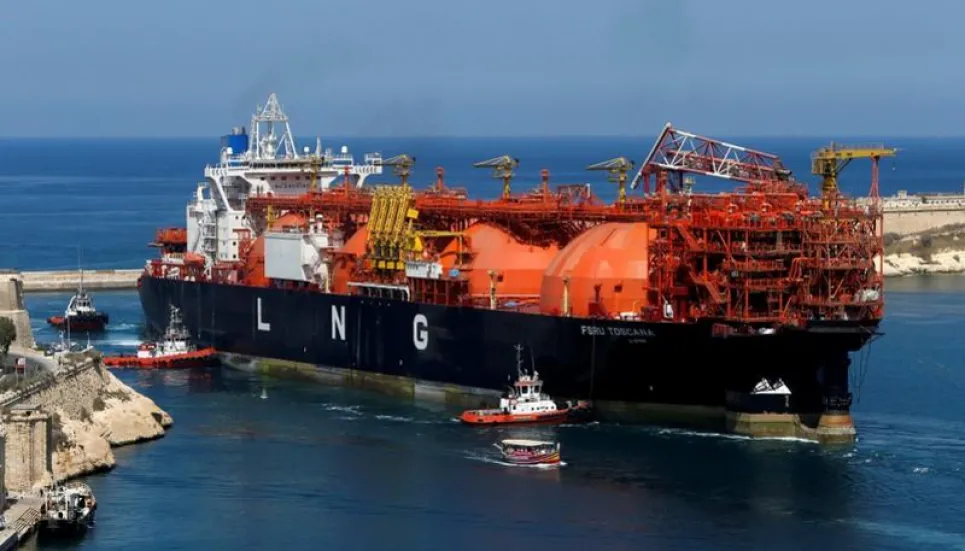
Bangladesh will buy 10-12 spot LNG cargoes between February and June if prices soften further, Prime Minister's Energy Advisor Tawfiq-e-Elahi Chowdhury told Reuters on Monday, in a reversal of a government decision last year to halt spot purchases after prices spiked.
“This is a high demand season for us. Ramadan is coming, this is also irrigation season, therefore, if market softens, we will buy 10-12 more spot LNG cargoes,” Bir Bikram Tawfiq-e-Elahi Chowdhury said on the sidelines of the India Energy Week.
Bangladesh issued a spot tender to buy a liquefied natural gas (LNG) cargo recently, after LNG prices plunged more than 70 per cent from August’s record of $70.50/mmBtu.
“We are looking at below $20 price for spot cargoes,” Chowdhury added, to cater to domestic demand which is going to rise in the coming months.
Bangladesh depends on imported natural gas for about three-quarters of its power generation, but was forced to ration gas supplies last year as global prices were driven up by Russia’s war in Ukraine.
Tawfiq-e-Elahi said European sanctions on Russia which push LNG prices up are discriminatory in nature for countries like Bangladesh, which are unable to secure LNG supplies due to high prices, according to Reuters.
Asian spot LNG prices last week were $19.50 per million British thermal units (mmBtu), the first time they have fallen below $20 since September 2021, as inventories remain high with peak winter demand due to end soon.
Bangladesh currently imports about 300 million-400 million cubic feet of LNG daily through a 10-year import deal with Oman and a 15-year import deal with Qatar.
“We had sent a delegation to negotiate a deal with Brunei LNG but they will be supplying 2025 onwards if that materialises,” Tawfiq-e-Elahi said.
He said a surge in gas prices after sweeping sanctions on Russia following the invasion of Ukraine made LNG inaccessible for the south Asian country.
“There were ships floating around Western Europe carrying gas, and other countries were not able to buy because of the price,” he said.
Bangladesh was one of the worst hit by the surge in LNG prices. Major cities in Bangladesh were forced to resort to hours of power cuts during the second half of 2022, disrupting commercial and industrial activity.
“Western countries literally priced us out of market,” Tawfiq-e-Elahi said.